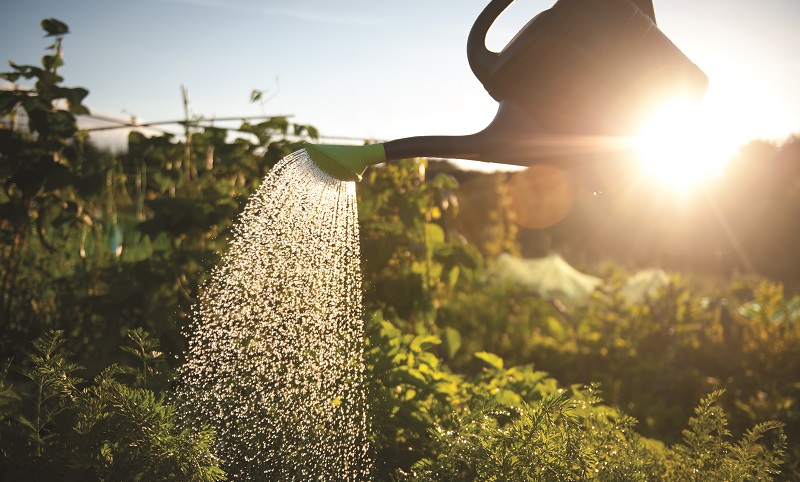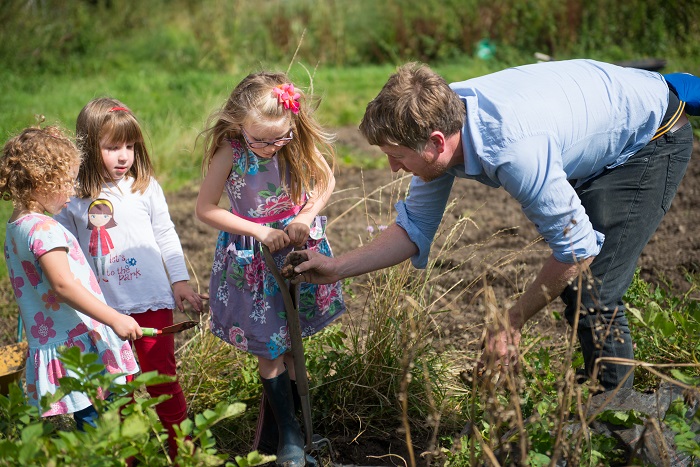What does organic actually mean?
 What is organic food?Organic food is produce which has been grown, tended to and harvested naturally, without the use of chemicals or enhancers.It’s food as it should be – natural and untampered with.Organic food is also fully traceable, meaning that, from farm to fork, you know it hasn’t been altered by chemicals, synthetic fertilizers, bioengineering, radiation, growth hormones or antibiotics.To be classified as organic, the production methods and the ingredients within a consumable product have to meet with strict food standards, as outlined by European law. Any product, farmer or manufacturer that’s labelled as organic will have passed rigorous, independent inspection.What goes into organic farming? Simply put, organic farming is about working with nature – and not against it. Organic farmers activity encourage wildlife on their land and bypass chemical pesticides, antibiotics or other artificial products that upset the natural balance of the local ecosystem.Organic food is produced with an emphasis on the use of more renewable methods and the conservation of soil and water. Organic farmers aim to continually preserve the natural fertility of the land, rather than damaging it for future generations.
What is organic food?Organic food is produce which has been grown, tended to and harvested naturally, without the use of chemicals or enhancers.It’s food as it should be – natural and untampered with.Organic food is also fully traceable, meaning that, from farm to fork, you know it hasn’t been altered by chemicals, synthetic fertilizers, bioengineering, radiation, growth hormones or antibiotics.To be classified as organic, the production methods and the ingredients within a consumable product have to meet with strict food standards, as outlined by European law. Any product, farmer or manufacturer that’s labelled as organic will have passed rigorous, independent inspection.What goes into organic farming? Simply put, organic farming is about working with nature – and not against it. Organic farmers activity encourage wildlife on their land and bypass chemical pesticides, antibiotics or other artificial products that upset the natural balance of the local ecosystem.Organic food is produced with an emphasis on the use of more renewable methods and the conservation of soil and water. Organic farmers aim to continually preserve the natural fertility of the land, rather than damaging it for future generations. Why’s organic kinder to the climate?There are some 300+ chemical pesticides used in the production of non-organic food and these damage natural wildlife populations, contaminate water and make their way into the food chain. Back in 2015, government testing found pesticide residues in 43% of British food.Organic farming reduces the impact of these pesticides by restricting their usage and only ever using pesticides derived from natural ingredients, like citronella and clove oil. This limits their environmental impact significantly.In terms of the wider carbon footprint of organic farming, growing crops organically creates significantly lower greenhouse gas emissions compared to non-organic agriculture. This is because healthy soils store five times as much carbon as forests do.According to the Soil Association, ‘if all UK farming was converted to organic, at least 1.3 million tonnes of carbon would be taken up by the soil each year - the equivalent of taking nearly 1 million cars off the road!’What’s the benefit to me?Buying organic is an ethical choice. It allows you to support animal welfare, reduce your carbon footprint, protect local wildlife and champion more sustainable ways of doing things. Sourcing produce from your nearest organic farm also means you’re contributing to the local economy.On a more personal level, eating organic means you’re avoiding regularly consuming artificial ingredients, pesticides, antibiotics and hormones. And although there’s no rule to say this is guaranteed to be more nutritious, you at least know what you’re putting into your body!There’s also the small question of the taste…You might call us biased but, here at Swillington Farm, we know our organic food tastes good. In fact, better than good – it tastes fantastic.Grown from the soil, nourished by the sun and tended to by nature (and our fair hands, of course), there’s nothing more rewarding than eating fresh, local ingredients grown naturally from the earth.
Why’s organic kinder to the climate?There are some 300+ chemical pesticides used in the production of non-organic food and these damage natural wildlife populations, contaminate water and make their way into the food chain. Back in 2015, government testing found pesticide residues in 43% of British food.Organic farming reduces the impact of these pesticides by restricting their usage and only ever using pesticides derived from natural ingredients, like citronella and clove oil. This limits their environmental impact significantly.In terms of the wider carbon footprint of organic farming, growing crops organically creates significantly lower greenhouse gas emissions compared to non-organic agriculture. This is because healthy soils store five times as much carbon as forests do.According to the Soil Association, ‘if all UK farming was converted to organic, at least 1.3 million tonnes of carbon would be taken up by the soil each year - the equivalent of taking nearly 1 million cars off the road!’What’s the benefit to me?Buying organic is an ethical choice. It allows you to support animal welfare, reduce your carbon footprint, protect local wildlife and champion more sustainable ways of doing things. Sourcing produce from your nearest organic farm also means you’re contributing to the local economy.On a more personal level, eating organic means you’re avoiding regularly consuming artificial ingredients, pesticides, antibiotics and hormones. And although there’s no rule to say this is guaranteed to be more nutritious, you at least know what you’re putting into your body!There’s also the small question of the taste…You might call us biased but, here at Swillington Farm, we know our organic food tastes good. In fact, better than good – it tastes fantastic.Grown from the soil, nourished by the sun and tended to by nature (and our fair hands, of course), there’s nothing more rewarding than eating fresh, local ingredients grown naturally from the earth. If you haven’t tried organic produce yet, give it a go! Because, if the wider environmental benefits of eating it haven’t already convinced you, then the taste just might. Our unflinching faith in the joys of eating organic is precisely what led us to create Garden Growers, our award-winning community supported agriculture scheme.Garden Growers enables you to feed your family with organic produce while avoiding inflated supermarket prices. A monthly subscription entitles you to a weekly supply of fresh, seasonal and organic vegetables, salads and fruit.If you’d like to get involved with Garden Growers, or sign up to receive a weekly organic veg share, then join now or get in touch for more information. Members can choose between a full share (4-6 people) or small share (2-4 people) and we offer one month’s trial before committing to a subscription.
If you haven’t tried organic produce yet, give it a go! Because, if the wider environmental benefits of eating it haven’t already convinced you, then the taste just might. Our unflinching faith in the joys of eating organic is precisely what led us to create Garden Growers, our award-winning community supported agriculture scheme.Garden Growers enables you to feed your family with organic produce while avoiding inflated supermarket prices. A monthly subscription entitles you to a weekly supply of fresh, seasonal and organic vegetables, salads and fruit.If you’d like to get involved with Garden Growers, or sign up to receive a weekly organic veg share, then join now or get in touch for more information. Members can choose between a full share (4-6 people) or small share (2-4 people) and we offer one month’s trial before committing to a subscription.